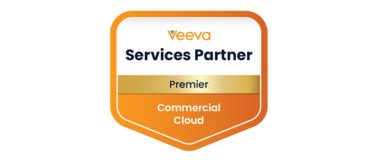
Process workshops for standardized, coordinated and efficient processes in the life sciences industry
"Why a process workshop? We know our processes!". That's right. And nobody knows them better than you, dear customers. And yet everyone in the company has their own view of the respective process. Management primarily sees the value-creating final steps. Work preparation pays particular attention to the points where product buffers occur, while quality assurance focuses on minimal deviations from the set targets. The clerks see the task steps on their own path and notice minimal deviations from the usual process. These different perspectives reflect the established culture of an organization.
If we ask each of the stakeholders just mentioned to describe their view of the process to us, step by step, we will ideally get a coherent overall picture. Often, however, there is already a “crunch” at the inventory stage. The view and understanding of one role owner does not fit seamlessly with the view of the person next to them and the consequences are lack of clarity and low efficiency, quality losses and errors.
In the course of introducing new software, customers sometimes tell us that the process is running but that there is no valid description of it. In such a situation, the requirements register for the new software reflects the shortcomings of the old situation rather than a collection geared towards customer benefits and competitiveness.

Alexander Frass, CRM Operations Manager
A process workshop is a good format for developing this shared view. The global process modeling standard BPMN (Business Process Model & Notation) offers a common language with which every conceivable process pattern in business collaboration can be mapped. People talk about processes from different perspectives and document them in a standardized way. Although the representation of the processes is standardized, there are no specifications for the processes themselves, except that they should be coherent.
In order for the discussion about the best process to develop an innovative dynamic, the objective of the workshop should be clearly communicated: is it about process discovery, i.e. the systematic recording of existing processes with the aim of identifying weak points? It can work wonders here if the various stakeholders have their process views reflected back to them and a common picture emerges before everyone's eyes: you can see where those involved do not have the information they need for their work. You can see how tasks are moved back and forth between people or departments, or how employees have to jump between screens of different applications or Excel spreadsheets in order to keep all the information together.

Or should the workshop be about mentally breaking away from established and well-practiced processes and formulating your own process in such a way that the needs of your customers take center stage? Here you can sometimes throw a lot of historically grown “ballast” overboard. However, this requires strong leadership and your willingness to understand your own processes from the perspective of your customers.
The process workshop is a building block in this development. If a process cannot be modeled logically and cleanly, we have not yet penetrated it sufficiently. Then there is still a lot of implicit communication in the process that is brought to light through modeling. This “discovery” is always received with great joy by those involved, and an innovative momentum is generated, as we have seen repeatedly in our workshops.
A process workshop cannot change the culture of the company, but with every process workshop the people involved develop the competence to discuss processes in correct BPMN models. Direct visualization and external process consulting help with coordination and ensure mutual understanding. It is worth gradually expanding the group of people to include all participating organizations. This increases the “process maturity” of the entire organization.
Whether you want to clarify a specific process or take a different look at your current practice, a process workshop is a good place to start.
Here you can find out more about our services - including process workshops - in the CRM systems we support.
Your contact
Get in contact. We will actively support you in designing your processes profitably.

Our partners
All partners












